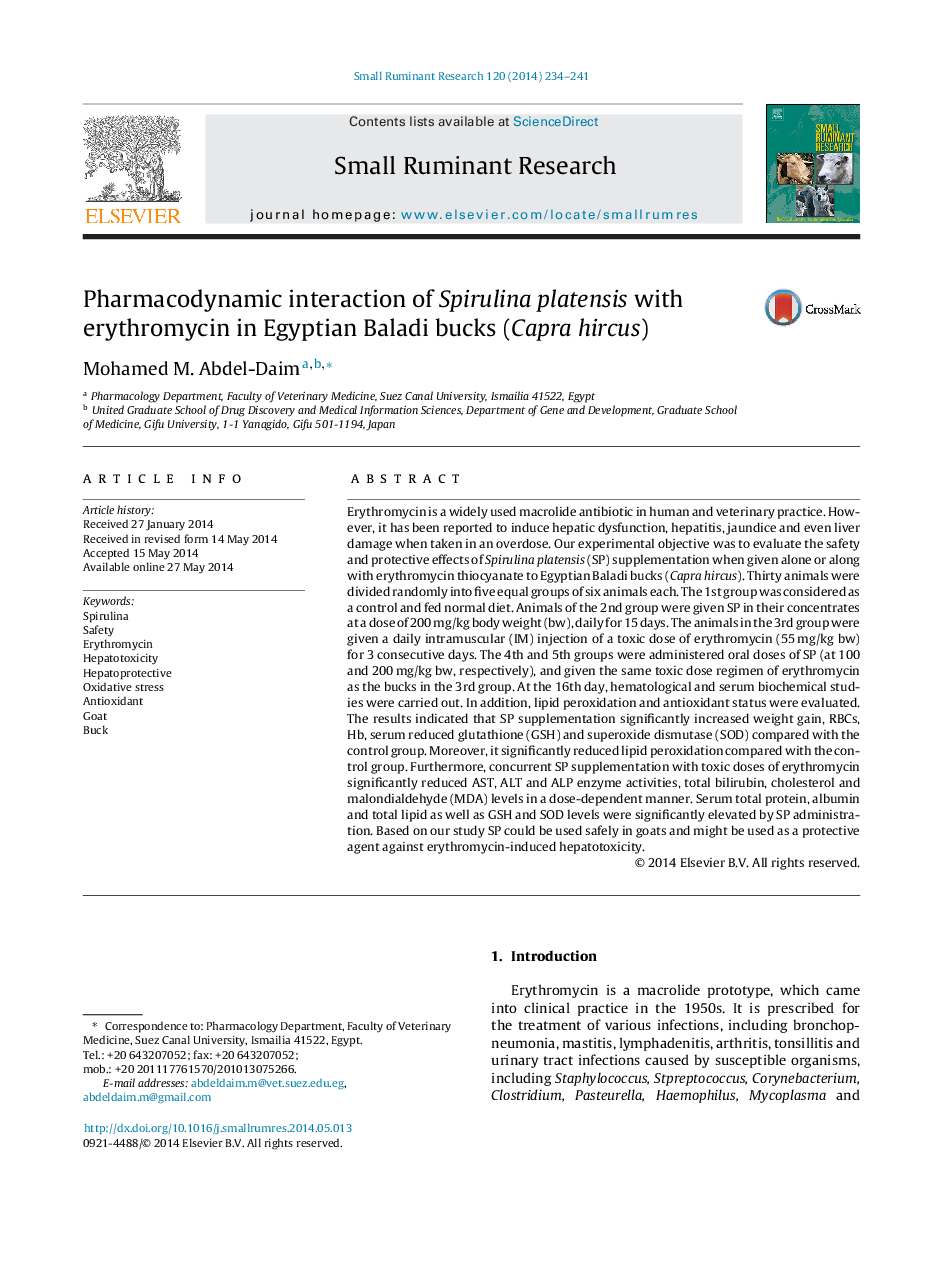| Article ID | Journal | Published Year | Pages | File Type |
|---|---|---|---|---|
| 5795602 | Small Ruminant Research | 2014 | 8 Pages |
â¢Spirulina platensis is safe for Egyptian Baladi Bucks.â¢Spirulina exerted hematinic, hepatoprotective and antioxidant effects.â¢Spirulina protected against erythromycin liver injury.â¢Spirulina protected against erythromycin oxidative damage.
Erythromycin is a widely used macrolide antibiotic in human and veterinary practice. However, it has been reported to induce hepatic dysfunction, hepatitis, jaundice and even liver damage when taken in an overdose. Our experimental objective was to evaluate the safety and protective effects of Spirulina platensis (SP) supplementation when given alone or along with erythromycin thiocyanate to Egyptian Baladi bucks (Capra hircus). Thirty animals were divided randomly into five equal groups of six animals each. The 1st group was considered as a control and fed normal diet. Animals of the 2nd group were given SP in their concentrates at a dose of 200Â mg/kg body weight (bw), daily for 15 days. The animals in the 3rd group were given a daily intramuscular (IM) injection of a toxic dose of erythromycin (55Â mg/kg bw) for 3 consecutive days. The 4th and 5th groups were administered oral doses of SP (at 100 and 200Â mg/kg bw, respectively), and given the same toxic dose regimen of erythromycin as the bucks in the 3rd group. At the 16th day, hematological and serum biochemical studies were carried out. In addition, lipid peroxidation and antioxidant status were evaluated. The results indicated that SP supplementation significantly increased weight gain, RBCs, Hb, serum reduced glutathione (GSH) and superoxide dismutase (SOD) compared with the control group. Moreover, it significantly reduced lipid peroxidation compared with the control group. Furthermore, concurrent SP supplementation with toxic doses of erythromycin significantly reduced AST, ALT and ALP enzyme activities, total bilirubin, cholesterol and malondialdehyde (MDA) levels in a dose-dependent manner. Serum total protein, albumin and total lipid as well as GSH and SOD levels were significantly elevated by SP administration. Based on our study SP could be used safely in goats and might be used as a protective agent against erythromycin-induced hepatotoxicity.
